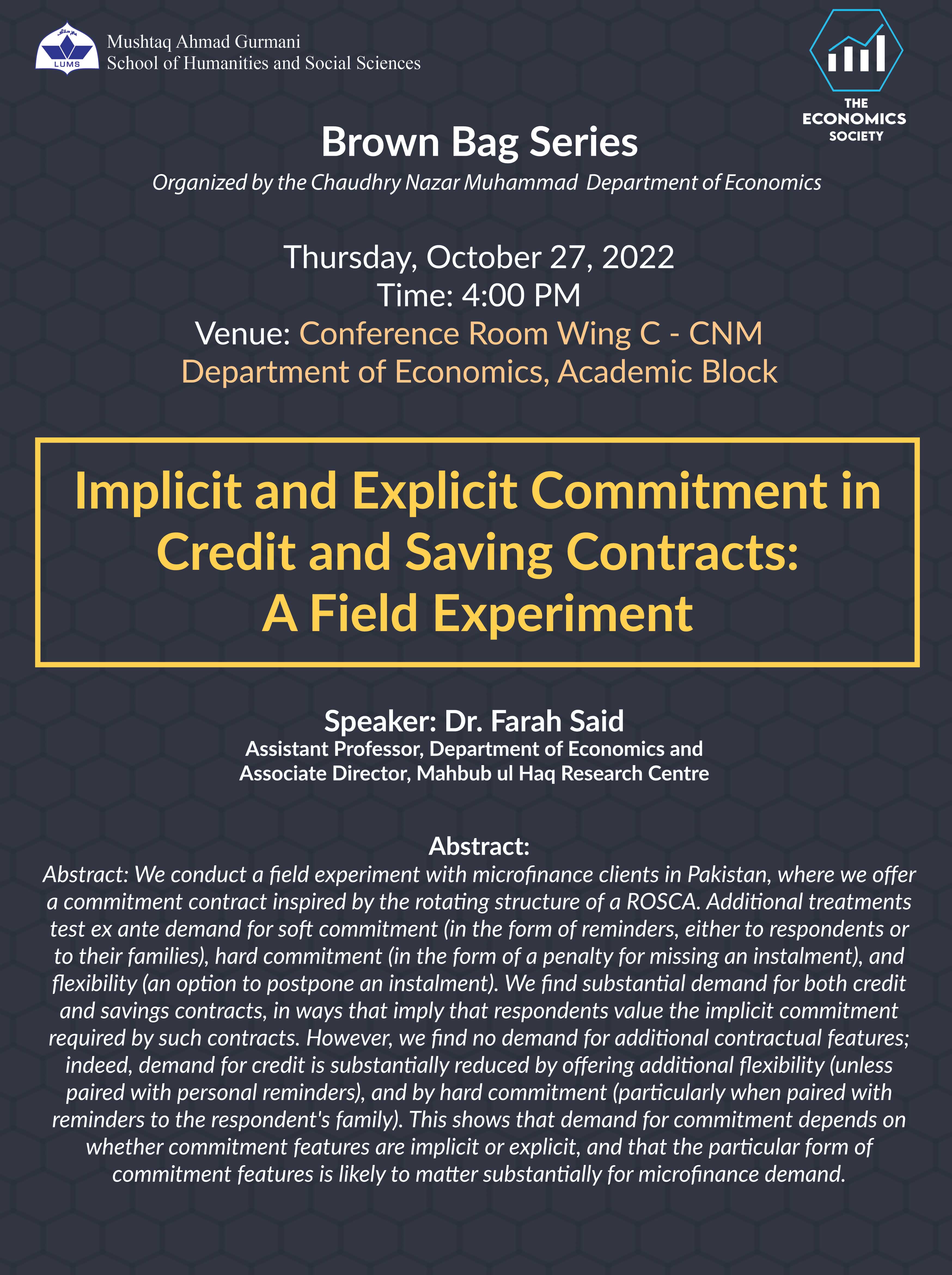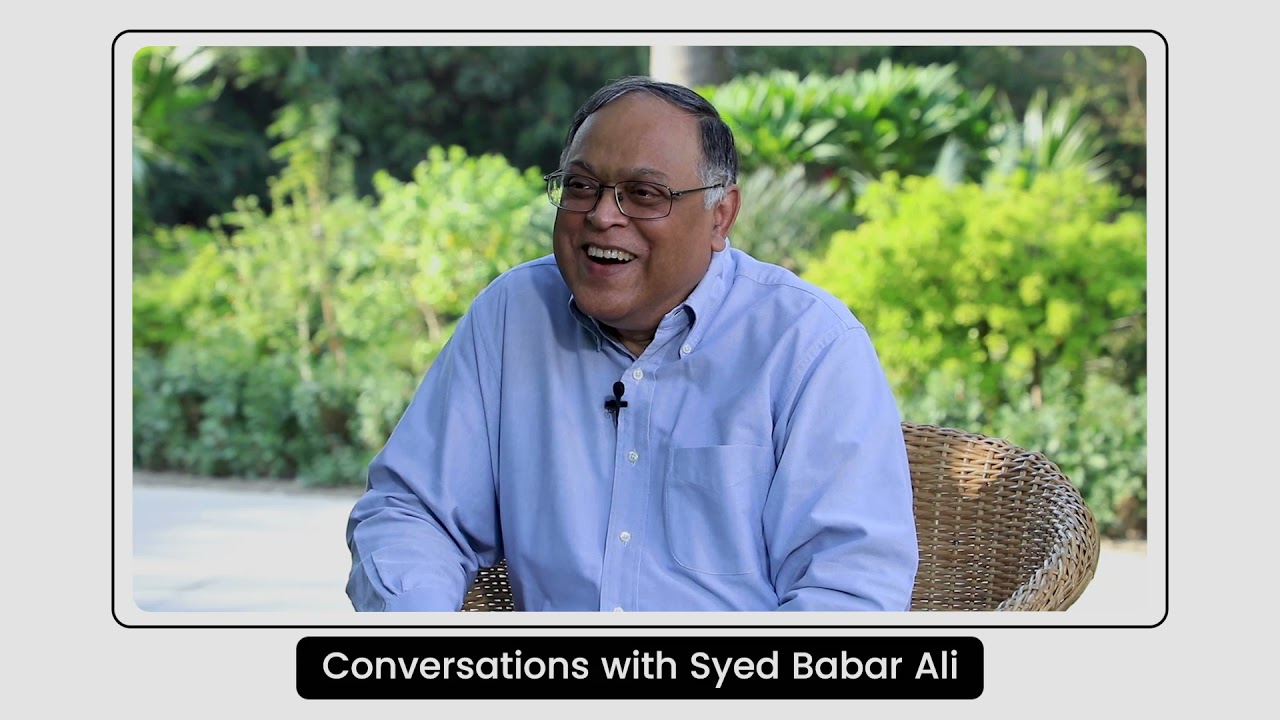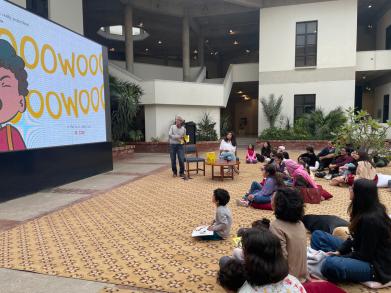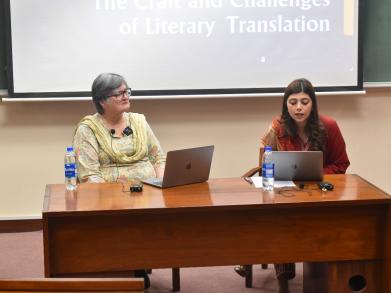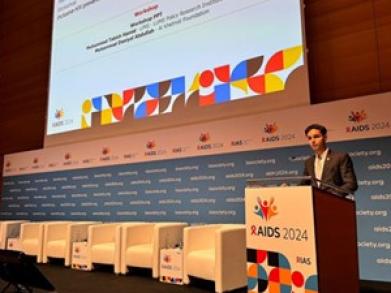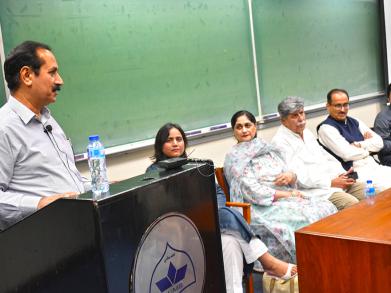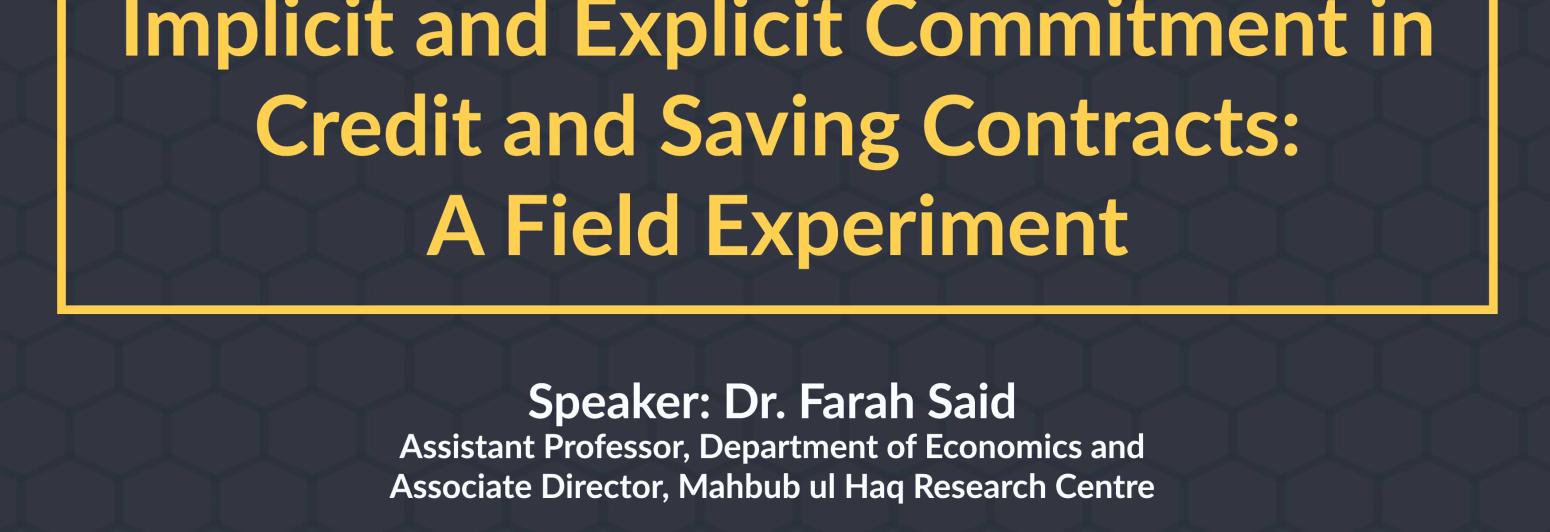
to
Abstract: We conduct a field experiment with microfinance clients in Pakistan, where we offer a commitment contract inspired by the rotating structure of a ROSCA. Additional treatments test ex-ante demand for soft commitment (in the form of reminders, either to respondents or to their families), hard commitment (in the form of a penalty for missing an installment), and flexibility (an option to postpone an installment). We find substantial demand for both credit and savings contracts, in ways that imply that respondents value the implicit commitment required by such contracts. However, we find no demand for additional contractual features; indeed, demand for credit is substantially reduced by offering additional flexibility (unless paired with personal reminders), and by hard commitment (particularly when paired with reminders to the respondent's family). This shows that demand for commitment depends on whether commitment features are implicit or explicit and that the particular form of commitment features is likely to matter substantially for microfinance demand.
